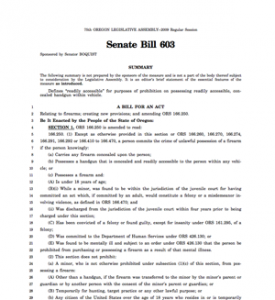 Per the United States Constitution, a Bill can become a Law once it has been introduced and approved through various government departments.
Per the United States Constitution, a Bill can become a Law once it has been introduced and approved through various government departments.
A Bill is a proposed law under consideration by a legislature. A Law is a rule enforced through social institutions to govern society’s behavior.
A Bill begins once an individual member of Congress submits to a member of the constituent or a group of constituents. A Bill can also be submitted to a member of Congress by a state legislature. Likewise, the President and the Presidential administration may suggest a Bill’s introduction.
Once a Bill is introduced to Congress, it is assigned to the appropriate Committee within the House and the Senate. A Bill is given scheduled hearings in order for Subcommittees to vote whether or not a Bill should be defeated or passed.
If a Bill is passed to the House and Senate, the Bill is considered and debated upon. This provides the departments discussion time to propose amendments to the Bill.
When a Bill is passed in conference in Congress, the Bill is taken to the Speaker of the House and the President for signature. If a Bill is not signed within a 10 day period, the Bill becomes Law. If a Bill is vetoed, or the Bill is killed, per say, the President’s veto is sent back to Congress with the President’s objections. The Bill is then reworked or dies.
After the President signs a Bill for approval or if the 10 day period has lapsed, the Law is taken to the Archivist of the United States where the Law is assigned a number and published. The Law is also distributed to the United States Statutes of Large and the United States Code where the Law is documented for further distribution and application.

